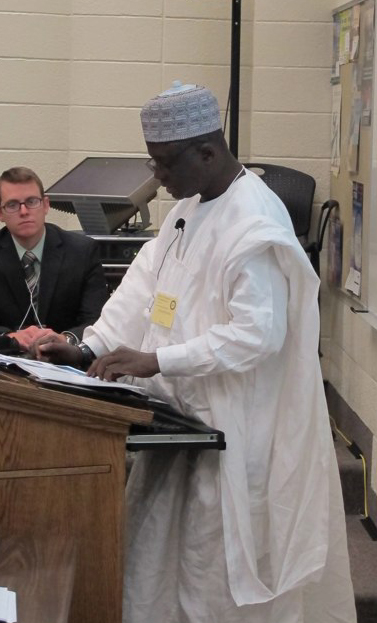Nigeria – Is-haq Oloyede

Joe Hepworth
ICLRS Research Advisor
Is-haq Oloyede presented what he described as a Nigerian Muslim perspective. Religious freedom is the absence of persecution or oppression on the basis of religion. Every religion worthy of the name will want to accommodate others in its thinking and its practice.
Mr. Oloyede described several areas of potential problems: 1. Is expressing an opinion of another’s religion insult or love? 2. Enforcing a state religion. 3. Intolerance of minority by majority. 4. In exercise of religion, some encroach on the freedom of others.
Mr. Oloyede expressed his view that religious freedom is an inalienable right of every citizen in every part of the world. He expressed that view “not just as a Nigerian, but as a Muslim.” Islam has no problem with pluralism. The Koran emphasizes freedom of religion. Islam therefore emphasizes the freedom of everyone to exercise religion of his choice, subject to public morality. Nigeria is uniquely pluralistic in that Christians and Muslims are about equal. Northern is not predominately Muslim and the south not predominately Christian. That is a fallacy. Some of the states in the north are predominately Christian and some of the states in the South is predominately Muslim.
Nigeria has 300 ethnic groups and 300 languages. 300 potential conflicts have been reduced to 2, the conflict between Muslims and Christians. Muslims believe that state institutions have been Christianized. Christians object to Sharia law.
Solving the problem requires a multi-dimensional solution. Nigeria brings Muslims and Christians together to solve problems. Nigeria created a platform to work together to solve common problems. For example, they work together to solve malaria. They also work to fight corruption, which is endemic in Nigeria. They fight against AIDS, promote justice, good government, and tolerance.
Mr. Oloyede is not aware of any violence on Christians in Nigeria. There are many evangelical groups preaching in Nigeria every weekend. Violence on Christians is exaggerated, he said.
In Nigeria, intermarriage between Muslims and Christians is acceptable. However, it causes inheritance problems because a non-Muslim cannot inherit from a Muslim.